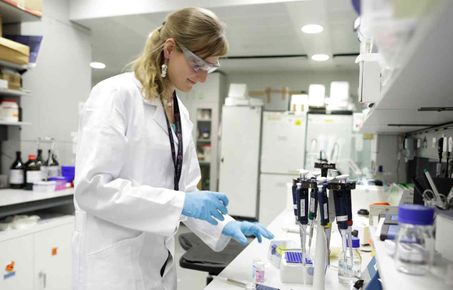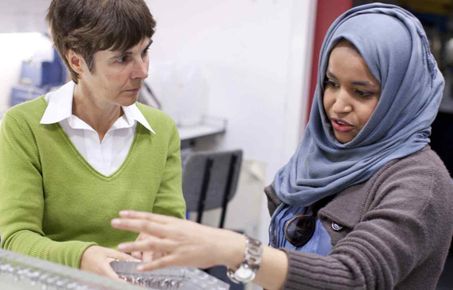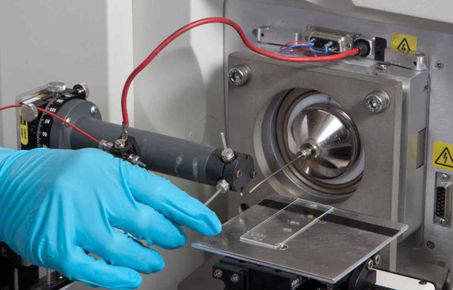IMSE's three guiding pillars
Molecular science and engineering
Molecular science and engineering melds a deep understanding of molecular science with an engineering mind-set. It is emerging as a powerful way to create novel, effective and sustainable solutions to a variety of grand challenges.
In this holistic approach, final function and end-use requirements become an integral part of the underlying scientific research. Commercially ready materials can be realised in an accelerated, flexible and economic manner.
Read more about the molecular science and engineering concept.

The holistic molecular science and engineering framework has been enabled by the conjunction of many recent technological advances. These developments now allow researchers to make, measure, and model molecules for specific purposes, with unprecendeted accuracy and predictive power.
These advances include:
- Novel approaches to making molecules and materials, e.g., click chemistry, advanced polymerisation, self-assembly and biomimicry.
- New characterisation and analytical techniques make it possible to image materials at almost every spatial scale.
- Multiscale modelling techniques that span the sub-atomic, micro- and macro-scales, allowing many processes to be accurately simulated.
- Ground-breaking and innovative manufacturing techniques, including and colloidal lithography.
- State-of-the-art systems engineering principles and modern computer-assisted decision-making techniques, that allow molecules and materials to be created and optimised for specific functions.
"It is not enough to simply make molecules; we must make molecules work for a complex world."

Vision
IMSE's overarching aim is to find molecular-based science and engineering solutions to grand challenge problems facing our world. For example:
- Making clean and affordable water supplies available to everyone around the world;
- Finding effective ways to inhibit the spread of infections and to limit the growing threat of antimicrobial resistance; and
- Realising a viable and sustainable global energy supply to reduce greenhouse gas emissions and the effects of anthropogenic climate change.
"The holistic thinking behind IMSE is very encouraging, forward-looking and will go a long way to solving important issues" - Paul Raithby, Professor of Inorganic Chemistry, University of Bath


